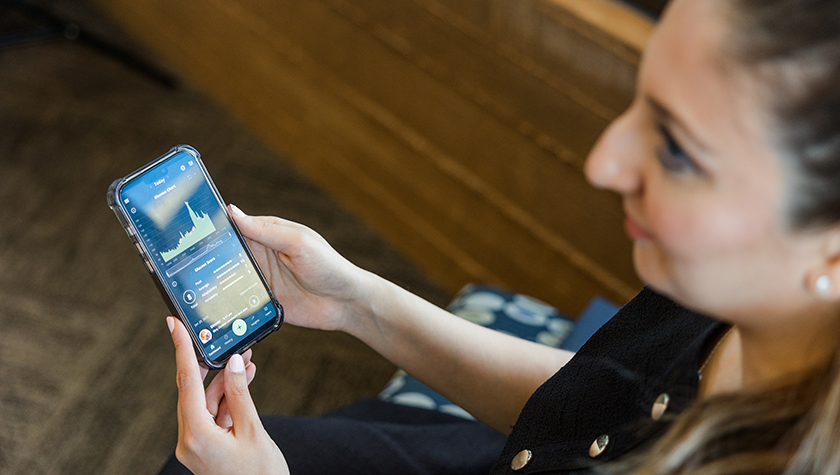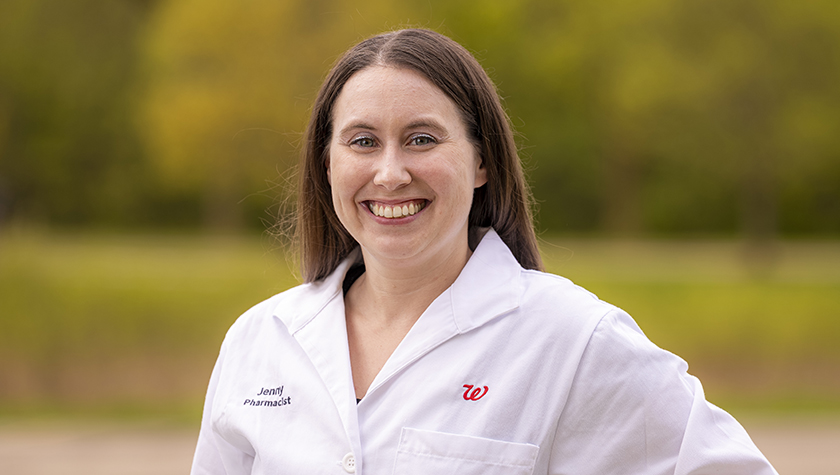
Alum Jenny Donar turns medication therapy management at Walgreens into a model for nationwide change
By Katie Ginder-Vogel
In a busy Walgreens in Watertown, Wisconsin, Jenny Donar (PharmD ’17) is transforming what community pharmacy can look like in a chain setting. Part pharmacist, part coach, Donar thrives on precision, energy, and impact — skills she honed as a Division I gymnast and now brings to the care of her patients.
Since stepping into the role of pharmacy manager, Donar has embraced medication therapy management (MTM) and comprehensive medication reviews (CMRs) as essential components of care. Under her leadership, her store became one of the first Walgreens locations to integrate MTM into its workflow — a move that’s now shaping corporate focus across the chain.
“I’ve incorporated it into our workflow and made my own independent pharmacy with my own team, whom I trust,” Donar says. “Now, Walgreens is creating a new workflow to implement it across the board, and I got to be one of the first stores that implemented it.”
“There’s a missing link in healthcare right now, and pharmacists have the opportunity to be that missing link.”
—Jenny Donar
From uncovering dangerous medication duplication to catching overlooked vaccine opportunities, Donar’s team is redefining what it means to work in a community pharmacy. And she’s not stopping there.
“There’s a missing link in healthcare right now, and pharmacists have the opportunity to be that missing link,” Donar says.
A model for medication management
Donar says Walgreens’ Cenfill software simplifies the process of filling prescriptions, freeing pharmacists to provide more patient care, vaccinations, and CMRs — a key part of MTM. Walgreens’ patient care portal provides a list of calls pharmacists need to make to patients each day, including calls for medication management services, like MTMs, CMRs, and late-to-refill calls to encourage adherence.
Donar encourages her colleagues across the state to help other stores with MTMs and CMRs. She describes the services as her “passion projects,” and she trains and coaches her staff and interns to provide them. A former Division I gymnast at the University of Iowa who coaches gymnastics in her spare time, Donar’s high energy and coaching skills are tried and true.
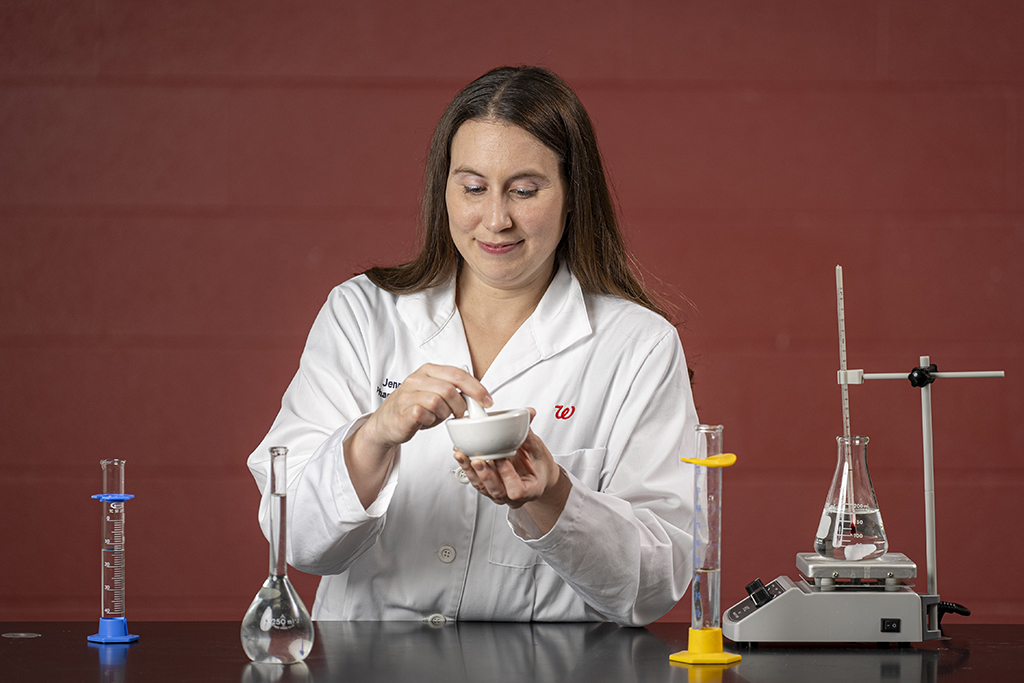
Pharmacists can set up MTM and CMRs for individual patients, and insurance typically covers the initial conversations, as well as follow-ups. The reviews are particularly helpful for patients on beta blockers, SSRIs, or who have rescue inhalers or diabetes medications to manage.
“We can do it on the phone; it doesn’t have to be in person,” says Donar. “There’s so much value in pharmacists being able to follow up with patients.”
Since the start of the year, Donar and her team have done more than 30 CMRs, and she believes each one positively impacted patient health.
“We found that one of our patients was taking two statins, and another was on two beta blockers — picking one up at Walgreens and receiving the second by mail order,” Donar says. If Donar’s team hadn’t caught these, the duplicated prescriptions could lead to serious side effects, including liver problems or heart issues.
In one of her most memorable cases, she worked with a patient who was on 54 medications from several different doctors and was experiencing many side effects.
“I made 12 different doctor calls to explain the direction I thought we should go in with her meds,” Donar says. “It took her two weeks to get back on track. Now, I can see what she’s picking up and follow up with her to make sure she’s taking her medications as directed.”
“Looking around, the key in community pharmacy right now is preventative care. Even if you only have 10 minutes of downtime, impacting one patient makes a difference.”
—Jenny Donar
Donar also uses CMRs to encourage patients to get vaccinated.
“I love a vaccination opportunity,” she says. “I pull up the Wisconsin Immunization Registry before I talk to patients, because I’m a firm believer in protecting as many people as we can against shingles, pneumonia, tetanus, RSV, COVID-19, and influenza. If their CMR indicates they need a vaccine, I will make sure they have the opportunity to schedule it.”
Walgreens pharmacists have the ability to utilize Outcomes software to create an action plan if a patient is due for a vaccine, with an explainer about what the vaccine is and what it’s for, so pharmacists can educate patients.
“In February, we received lists of patients who hadn’t gotten their flu shots, so we called to remind them to do it,” Donar says. “Nine times out of 10, those patients were due for more than one vaccine. We’d print it out and put it on their bag when they picked up prescriptions, too — you’re due for flu and tetanus vaccines, and we recommend them.”
Leading by coaching
Donar got interested in MTM and CMRs during her first year as a pharmacy manager at Walgreens, after spending a few years working with one of Walgreens’ dedicated full-time outcomes pharmacists, who each covered 40 to 50 pharmacy locations.
“They weren’t doing it at the store level yet,” Donar explains. “In 2020, that person began focusing on COVID-19 vaccines, so that role wasn’t there anymore, and that’s when I started picking it up at my store and training pharmacists to incorporate it into our workflow.”
Now that techs can give vaccines and senior certified techs can do CMR prep, Donar says pharmacists can focus more on coaching and talking with patients.
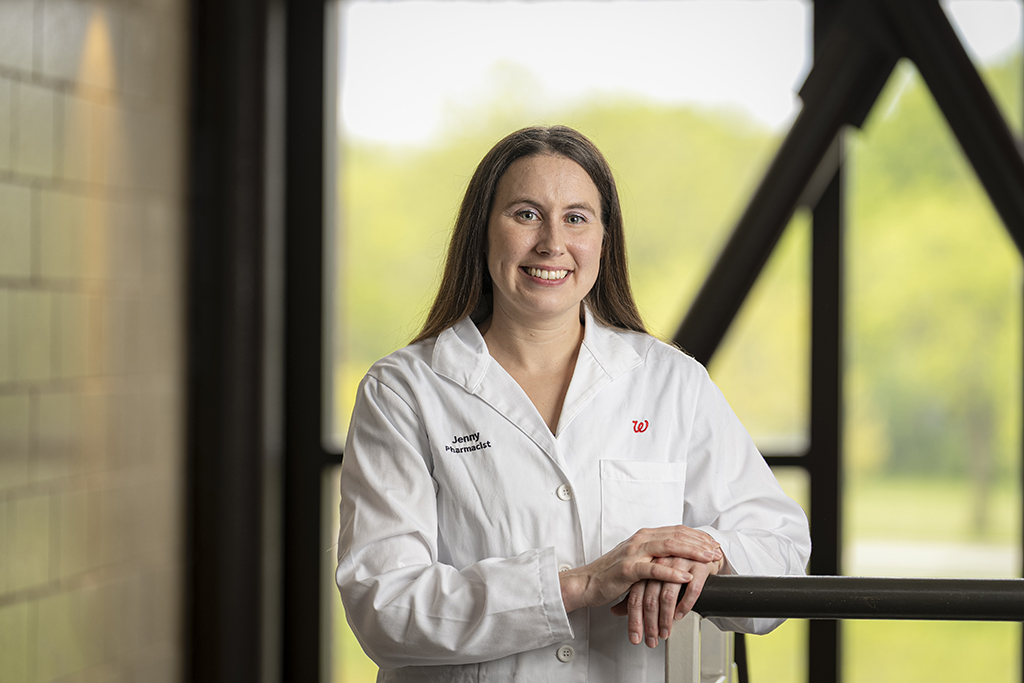
“Looking around, the key in community pharmacy right now is preventative care,” Donar says. “Even if you only have 10 minutes of downtime, impacting one patient makes a difference.”
In the past three years, Donar’s team has talked to other stores about incorporating CMRs into their workflows, and now that Walgreens is adding them to the workflow and encouraging pharmacists to complete them, Donar is optimistic that the practice will take off in the next year or two.
Jason Lau (PharmD ’01), the supervisor for the Madison-area Walgreens pharmacies, is proud to see Donar’s services expanding nationally to reach more patients.
“As we look for ways to advance pharmacy practice, clinical services like MTM and immunizations show the value that pharmacists bring to the healthcare team. Our pharmacists can utilize their knowledge and expertise to improve patient outcomes by identifying potential drug-related problems and gaps in care,” says Lau. “Jenny is passionate about these services and has embraced implementing them into her team’s daily routine. She truly cares for her patients and inspires others to do the same. She is a great resource that shares best practices across the area to help others implement these clinical services seamlessly into workflow.”
Donar, a coach at heart, always finds opportunities to help her team and colleagues at Walgreens enhance their skills and capacity to help patients.
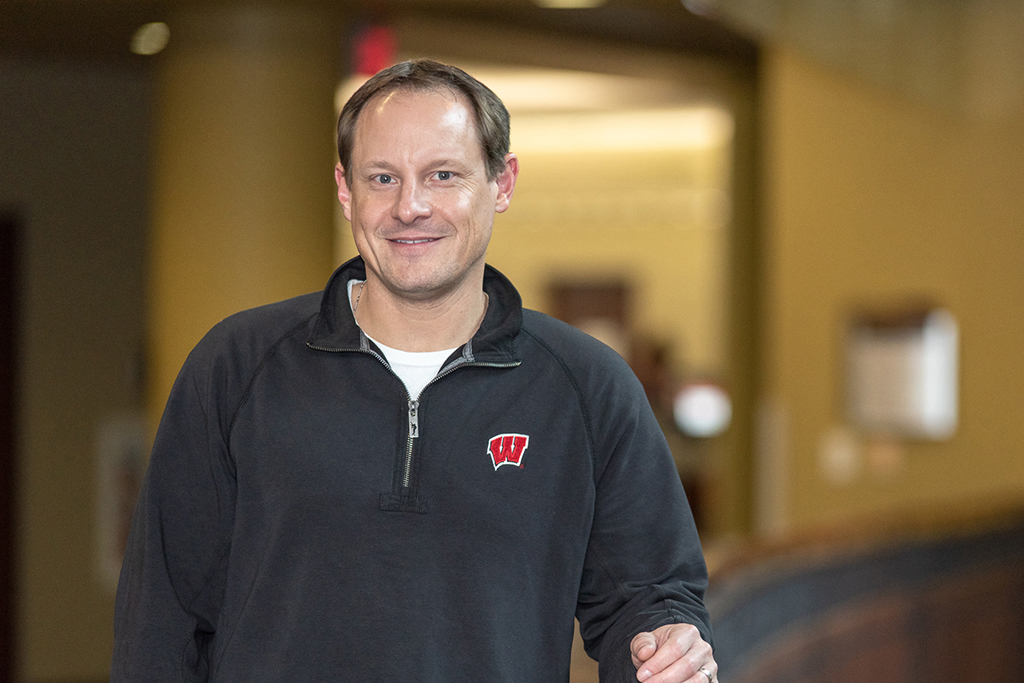
“I helped with Walgreens’ buy-out of Rite Aid in Michigan, training and coaching newer Rite Aid pharmacists to become Walgreens pharmacists,” Donar says. “I taught them Walgreens’ pharmacy operations and technology tools. I love the training and coaching piece.”
Donar recently called another store that had been regularly completing CMRs and had temporarily paused those efforts, to encourage the pharmacist to resume them again.
“He did 24 in April!” she says. “I got his store manager and techs on board. You’re already on the phone; you might as well add those into your regular daily calls.”
After years of pushing boundaries in community pharmacy, Donar says she feels fulfilled — and energized for what’s ahead.
“In community pharmacy practice, there’s never a dull moment,” Donar says. “We answer lots of questions and address the whole picture of health care. We see it all. I love it.”
